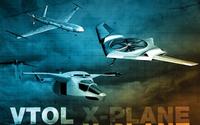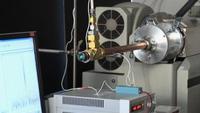-
The impact of sea-level rise on coastal military installations
The Pentagon says that climate-related effects are already being observed at Department of Defense (DoD) installations in every region of the United States and its coastal waters. The effects of climate change will adversely impact military readiness and DoD natural and built infrastructure unless these risks are considered in DoD decisions. A new white paper developed by the Pentagon’s Strategic Environmental Research and Development Program (SERDP) identifies key climate-related policy questions that need to be addressed.
-
-
Police budget cuts a boon to private security picks
In cities across the United State, local law enforcement, facing deep budget cuts, has had to do more police work with fewer officers. New Jersey alone lost 4,200 officers between 2008 and 2011. The reduction in police force has been a boon to the U.S. private security industry, which is expected to earn more than $19 billion by 2016.
-
-
Developing the next-generation of VTOL aircraft

One of the greatest challenges of the past half century for aerodynamics engineers has been how to increase the top speeds of aircraft that take off and land vertically without compromising the aircraft’s lift to power in hover or its efficiency during long-range flight. DARPA’s new VTOL X-Plane project aims to achieve higher speeds, increased efficiency, and elegant design.
-
-
Saving money and time in developing phased RF arrays
Phased radio frequency (RF) arrays use numerous small antennas to steer RF beams without mechanical movement. These electronics are invaluable for critical DoD applications such as radar, communications, and electronic warfare. These arrays, however, come with a high price tag. Current phased arrays are extremely expensive and can take many years to engineer and build.
-
-
Rhode Island bill would require gun owners to register their weapons
A proposed bill in Rhode Island would require gun owners to register their weapons with local or state police, and would also allow police to file copies of applications for gun purchases sent to them for background checks.
-
-
Infrared digital holography allows firefighters to see through flames, smoke
Firefighters put their lives on the line in some of the most dangerous conditions on Earth. One of their greatest challenges, however, is seeing through thick veils of smoke and walls of flame to find people in need of rescue. A team of Italian researchers has developed a new imaging technique that uses infrared (IR) digital holography to peer through chaotic conflagrations and capture potentially lifesaving and otherwise hidden details.
-
-
With budget cuts looming, ICE releases undocumented immigrants from detention
With budget cuts hanging over federal agencies, Immigrations and Customs Enforcement (ICE) has started to prepare for the cuts by releasing detainees from its detention facilities across the country on Monday.
-
-
Israel tests advanced Arrow 3 missile defense
Israel and the United States have jointly tested the Arrow 3, a ballistic missile defense system designed to intercept enemy missiles outside the atmosphere. The Arrow 3 is the fourth component of Israel’s layered missile and rocket defense system, which also includes Iron Dome, David’s Sling, and Arrow 2. The Arrow 3 was designed to intercept missiles outside the atmosphere.
-
-
Tennessee considers ways to raise money for homeland security
A 2011 bill gave the Tennessee government the ability to revoke the license of anyone in the state who did not pay criminal fines and court costs. Lawmakers originally hoped the law would bring millions of dollars in reinstatement fees, money which would be directed to the Tennessee Department of Safety and Homeland Security. Only nine counties are complying with the law by notifying the state of violators, and so far the state had collected just $22,425.
-
-
Cockroaches gait informs search-and-rescue robot design
More than 70 percent of Earth’s land surface is not navigable by wheeled or tracked vehicles, so legged robots could potentially bridge the gap for ground-based operations like search and rescue and defense. New insights on how cockroaches stabilize could help engineers design steadier robots for operating on difficult terrain.
-
-
Computers, data help police prevent violence
As cities across America work to reduce violence in tight budget times, new research shows how they might be able to target their efforts and police attention — with the help of high-powered computers and loads of data. These computers offer detailed analysis of drugs, alcohol, and crimes across a city, helping target crime prevention.
-
-
Battle-tested technologies no employed by the police
Technologies employed in the wars in Iraq and Afghanistan are now hitting local streets across the United States, changing how local law enforcement investigates crimes by focusing on where crimes are most likely to happen instead of where a crime has taken place.
-
-
Background checks should be required for all firearm transfers: study

In 2012, there were an estimated 467,321 firearm-related violent crimes in the United States, a 26 percent increase since 2008. There were 11,101 firearm homicides that year, and an estimated 55,544 injuries resulting from gun-related assaults requiring treatment in hospital emergency departments. Individuals who buy firearms from a license dealer must undergo a background check, but 40 percent of U.S. gun transactions are exempt from background checks because they occur between unlicensed private parties, such as people buying and selling at gun shows. That figure doubles, to more than 80 percent, for firearm sales that involve criminal intent.
-
-
Climate change as a national security issue
In a new report, Harvard researcher is pointing toward a new reason to worry about the effects of climate change — national security. During the next decade, the report concludes, climate change could have wide-reaching effects on everything from food, water, and energy supplies to critical infrastructure and economic security. “The imminent increase in extreme events will affect water availability, energy use, food distribution, and critical infrastructure — all elements of both domestic and international security,” the report’s author says.
-
-
New explosives vapor detection technology

Novel explosives detection method focuses on direct, real-time vapor detection rather than collection of explosives particles. It could change paradigm for explosives screening.
-
More headlines
The long view
Why Was Pacific Northwest Home to So Many Serial Killers?
Ted Bundy, Gary Ridgway, George Russell, Israel Keyes, and Robert Lee Yates were serial killers who grew up in the Pacific Northwest in the shadow of smelters which spewed plumes of lead, arsenic, and cadmium into the air. As a young man, Charles Manson spent ten years at a nearby prison, where lead has seeped into the soil. The idea of a correlation between early exposure to lead and higher crime rates is not new. Fraser doesn’t explicitly support the lead-crime hypothesis, but in a nimble, haunting narrative, she argues that the connections between an unfettered pollution and violent crime warrant scrutiny.
Bookshelf: Smartphones Shape War in Hyperconnected World
The smartphone is helping to shape the conduct and representation of contemporary war. A new book argues that as an operative device, the smartphone is now “being used as a central weapon of war.”
